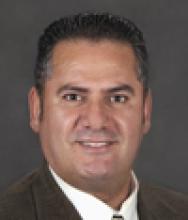Dissociative identity disorder: Time to remove it from DSM-V?
Examining the logic behind arguments to perpetuate a controversial diagnosis
6. Does a DID diagnosis do harm?
Webster’s14 defines iatrogenic as: “Resulting from the activity of a physician. Originally applied to a disorder or disorders inadvertently induced in the patient by the manner of the physician’s examination, discussion, or treatment, it now applies to any condition occurring in a patient as result of medical treatment, such as a drug reaction.”
A DID diagnosis has been blamed for misdiagnosis of other entities,15 patient mismanagement,16 and inadequate treatment of depression.17 Even when DID is treated with the best of intentions, undesired negative effects may result from psychotherapy, and some patients experience worsening of symptoms and/or deterioration of functioning.18,19
In Creating Hysteria, Acocella20 cites examples of harm done to [alleged DID] patients and their families, including 2 high-profile cases under the care of a member of the DSM-IV work group on dissociation.
7. How is self-deception possible?
The ability to self-deceive has advantages and disadvantages,21 and widespread deception is possible. Richard Dawkins’s The God Delusion,22 Christopher Hitchens’s God is Not Great,23 and Michael Shermer’s Why People Believe Weird Things24 are recent exposés of how self-deception and deception by charismatic figures occurs despite the progress “reason” has made.
As with other belief systems that become entrenched in the face of criticism, DID proponents accuse critics of denial, reluctance, and adopting “defense[s] against dealing with the reality of child abuse in North America.”20 One wonders why just North America! Why not Africa, with its children in Sudan, Somalia, Zimbabwe—to name a few—enduring enough abuse to spread around the world several times over?
Proponents also allege that part of the reason for “professionals’ reluctance” to embrace DID is the “subtle presentation of the symptoms.”25 In other words, it is not reluctance; it is ignorance, with the insinuation that nonbelievers or skeptics are not smart enough to pick up on the subtle clinical presentation. I can’t see why professionals would be ignorant when it comes to dissociation as opposed to schizophrenia, depression, bipolar disorder, and almost all DSM-IV disorders. Why this selective ignorance exists remains unexplained.
8. Experts and conflict of interest
DSM-V’s guidelines on conflict of interest are very welcome. One hopes conflict of interest does not refer only to financial relationships with pharmaceutical companies. Conflicts of interest can exert unseen influence, which—if made clear—would have a direct bearing of the reliability and trustworthiness of the published literature. Strong adherents have a lot to gain from perpetuating DID. Nonbelievers, skeptics, and opponents would gain nothing if DID disappeared from DSM today or in 2012.
The first potential conflict of interest for DID “experts” is financial gain. For example, a psychologist saw 1 of my patients (before I came to the scene) for 5 years for 3 sessions a week (2 for adult alters and 1 for childhood alters), with annual earnings of nearly $20,000. A self-declared expert would need only 10 patients to be better off than most psychiatrists.
The second potential conflict of interest is personal gain in the form of narcissistic gratification, as mentioned above. Although DID proponents blame neophytes, “teachers” are no less prone to narcissistic gratification. Under this umbrella falls the DID experts’ interest in recognition, fame, and easily acquired expertise. One may argue that self-arrogated expertise in this realm is much ado about nothing.
The third potential conflict of interest is the very process of becoming an “expert.” The bias of this process is evident because if one does not accept a priori the presence of DID, he or she will never be admitted to the exclusive club of “DID experts.” To attain the status of authority or expert on this subject, one must be a believer. Otherwise, how would one claim to have diagnosed and treated hundreds of DID cases? It is a feedback loop that can’t be broken.
Related resources
- Borch-Jacobsen M. Making minds and madness: from hysteria to depression. New York, NY: Cambridge University Press; 2009.
- Memory and reality. False Memory Syndrome Foundation. www.fmsfonline.org.
Disclosure
Dr. Gharaibeh reports no financial relationship with any company whose products are mentioned in this article or with manufacturers of competing products.







